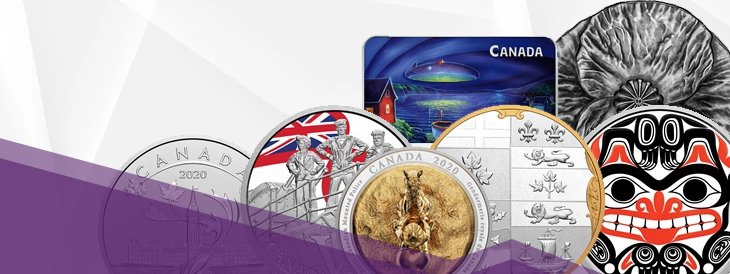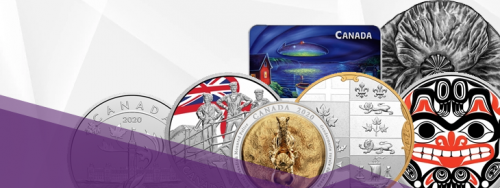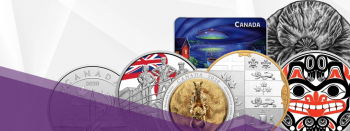Last updated on May 2nd, 2024 at 03:34 pm
Last Updated on May 2, 2024 Posted by Colonial Acres Coins
In September 2020, the Royal Canadian Mint announced some changes to the way numismatic coins are treated for tax purposes. These changes only affect a subset of coins, particularly those with substantial embellishments beyond a typical coin. Understanding the new treatment and how it affects your numismatic purchases can help you be better prepared for the future of coin collection.
What Has Changed?
Per the announcement, starting September 28, 2020, the RCM began considering some numismatic coins to be no longer tax-exempt. The coins included in this change have been modified to an extent that they are no longer “financial services or instruments.”
It is worth noting that there have been no rule changes. Instead, the RCM has reviewed its internal policies and decided that the current law, specifically the Excise Tax Act, was not being accurately applied.
What Does the Law Say?
Under the definitions provided by the Excise Tax Act, the mint has typically considered coins to be exempt from both the goods and services tax and the harmonized sales tax. This is because financial instruments are not typically taxed.
However, the Act provides a fairly narrow set of criteria for what is a financial service or instrument that would be exempt. Based on recent case law, that definition has become even narrower. Therefore, the mint has determined that some coins are subject to GST/HST according to the current interpretation of the law.
Which Coins Are Subject?
The RCM indicates that modified coins under a certain purity threshold are subject to taxation. Modifications include the following:
- Sculptures
- Moving parts
- Embedded crystals, gemstones or diamonds
- Other embellishments
This list is fairly vague, and the mint clearly states that it is not all-inclusive. Fortunately, the other part of the definition is more concrete. The final product for silver coins must be at least 99.9% pure. For gold and platinum coins, it must be at least 99.5% pure.
The above rules apply only to GST/HST, which are federal taxes. Some provinces, including Saskatchewan, Manitoba, British Columbia and Quebec, also charge sales tax. Notably, Manitoba and BC collect their PST on coins with a selling price in excess of the face value of the coin. This covers almost all numismatic coins, a significant departure from the narrower rules applied by the Royal Canadian Mint.
How Much Is the Tax?
The taxation depends on the province and varies from a low of 5% to a high of 15%. Some provinces and territories only apply the federal tax, while others have combined taxation.
Alberta, Nunavut, Yukon, and the Northwest Territories apply only a 5% GST/HST. None of these provinces and territories has a provincial sales tax.
New Brunswick, Nova Scotia, P.E.I., and Newfoundland and Labrador apply a 15% GST/HST with no PST.
British Columbia and Manitoba apply a 5% GST/HST with a 7% PST for a combined total of 12%.
Saskatchewan applies a 5% federal tax with a 6% PST for a total of 11.
In Ontario, the GST/HST is 13% with no PST.
Finally, in Quebec, the GST/HST is 5% with a 9.975% PST for a total of 14.975%.
What Other Taxes May Apply?
The Royal Canadian Mint is required to collect all relevant taxes, provided that it is registered with the jurisdiction. Customers from the U.S. may have to pay state taxes, which the RCM often collects. Customers from certain other countries may need to pay VAT. However, the RCM does not collect this for any country other than Canada.
Find Your Ideal Coins Today
A new tax treatment for some numismatic coins doesn’t stop the fun to be had with coin collecting (or some great deals!) If you want to find the perfect Royal Canadian Mint coins for your collection, check out the Colonial Acres Coins catalogue.




